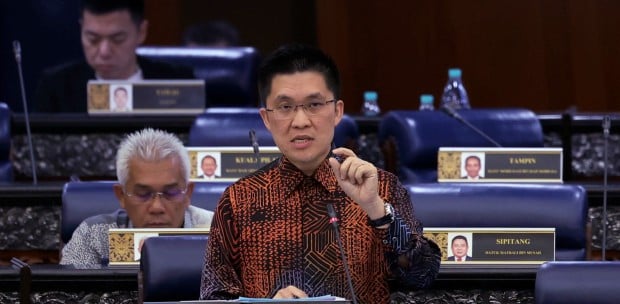IF you’re a regular traveller, you would know that as a foreigner, you don’t actually get many privileges (except for shopping discounts and tax rebates), especially in countries where they heavily promote themselves as a tourism destination.
You are actually charged much more than a local for, among others, your accommodation, food and beverage and entrance fees to tourism sites. You’re also slapped with other taxes concocted to add revenue to the coffers of the local authorities. Terms like “environment” tax and “culture” tax have been used for years.
If you don’t already know it, these tourism taxes are wide-spread. And, you don’t have to go far to find countries that have already imposed the tourism tax. Indonesia, Thailand and Singapore have already done it.
Take the island of Bali in Indonesia, for instance. I have been to the island eight times in the span of three years. We have had to add a 10 per cent local development tax on our hotel and restaurant bills. We paid higher than the locals to enter tourist sites, like their famous temples and to watch their cultural shows, and was charged with an airport service fee (which has since been incorporated into the airfares) before our flight home.
There is no way you can avoid paying these taxes. In Indonesia, the tourist tax varies across Indonesia because it is applied at the local district level rather than as a national tax. Areas that are more likely to see tourist activity and do not have other income sources are those most likely to apply a tourist tax, with Bali being a prime example. The 10 per cent hotel and restaurant tax is a regional tax collected by a Kabupaten (regency) or a city like Jakarta.
The driver that I engaged during my Bali trips told me that the taxes collected are given to the central government and portioned back to the island for development.
The Guardian reported that city tax is charged on hotel stays across many European cities, including Paris, Berlin, Rome, Amsterdam and Barcelona, and in some more far-flung destinations, such as Dubai and America. Rates and charging structures vary. Another report by TravelSupermarket.com said in some cities, you can be expected to pay on a per person, per night basis, while in others, such as Berlin, Amsterdam and Cologne, city tax is charged at a flat rate of 5 per cent of your hotel room bill. You may have to pay for your children too — in Berlin, for instance, the stay is taxed, while in Italy there are usually exemptions for the under 14 or under 16.
Here in Malaysia, we are just about to implement this tourism tax this year following the passing of the Tourism Tax Bill 2017 at the last Parliament sitting with a majority vote.
Effective Aug 1, Malaysia joined other nations in imposing the flat fee of RM10 on foreigners per room per night for all types of hotels and accommodation. This decision was reached after much brouhaha over the earlier proposal, where both locals and foreigners were to have been charged between RM2.50 and RM20 per night depending on the hotel’s rating.
As it is, hotel tax is not new in Langkawi, Penang and Melaka, as each have their own “fees” in addition to their room charges per night.
There were fears of tourist arrivals and receipts dipping with the implementation of the tourism tax, but do we seriously think that a foreign traveller would skip Malaysia during his vacation in Southeast Asia for the additional dollars or euros he had to pay for his accommodation here?
Would it make us less competitive than Singapore, Indonesia or Thailand, whose five-star hotel rates are at least 20 to 30 per cent higher than Malaysia?
Analysts have said the new tourism tax is unlikely to affect inbound tourism. They said the rates are not excessive and can easily be borne by the foreign guests.
Nobody likes taxes. It can throw your holiday into disarray especially when you are on a tight travel budget. But, you can overcome this if you research your trip ahead of time. By planning ahead, you can find the cheapest flight tickets and accommodation and have money to set aside for taxes, road tolls, airport departure taxes and excess baggage.
Where hotels are concerned, there are websites that compare prices and give you the lowest rate. I have done all my villa bookings for Bali online. And, depending on the day and month of my travel, I can get five-star accommodation at dirt cheap prices. Most times, I travel off-season as you can find the best bargains.
By the way, there is a trick to paying less in Bali. Putu, my driver, always buys me and my friend the cheaper entrance ticket to any local tourism sites in Bali. After our first two visits, he tells my friend and I that we can easily pass off as Indonesians. We sound like those from Jakarta especially when we speak the Indonesian dialect. It helps too that my friend likes to wear the comfortable short-sleeved cotton batik shirts on his holidays.
FAUZIAH ISMAIL, a United Nations’ Journalism fellow and Wolfson College Cambridge press fellow, with 30 years of experience as a journalist, is Associate Editor, Lifestyle.






